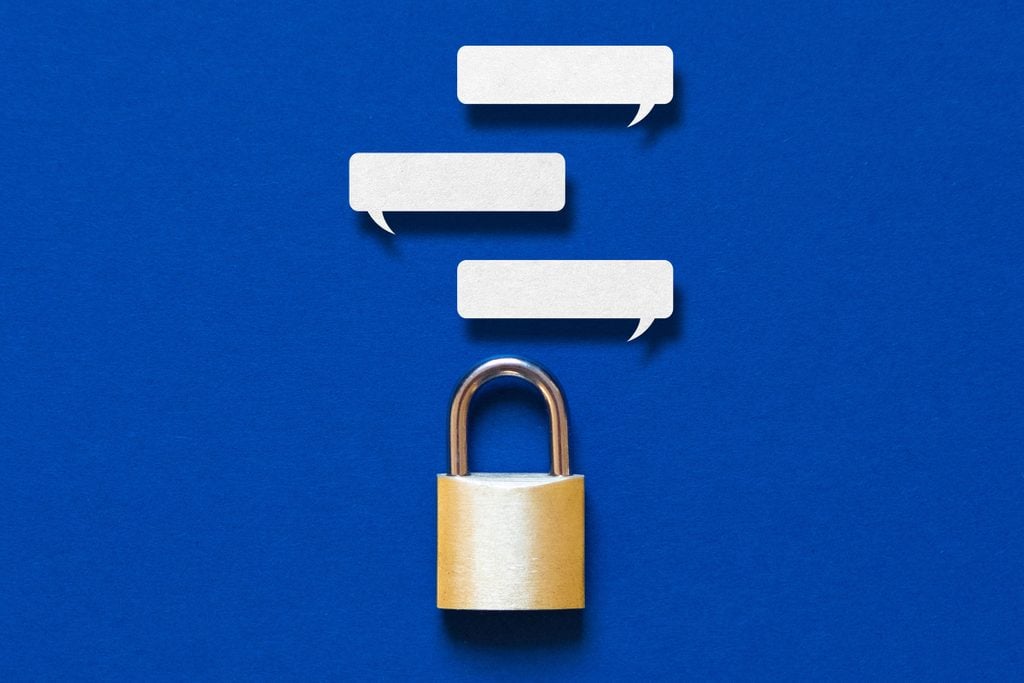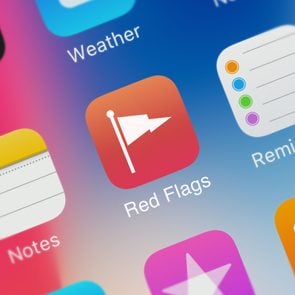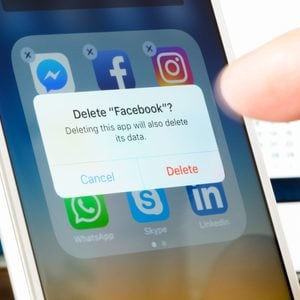The Most Secure Messaging Apps for iPhones and Androids
Updated: Jul. 27, 2022

Whether you have an iPhone or Android, these secure messaging apps will make your digital privacy their top priority.
Not all messaging apps are created equal. While some take extra steps to protect your messages, others could leave your data vulnerable to hackers. Before you hit the “Send” button, read up on why secure messaging apps are safer than SMS messaging, how the apps work, and which apps are the best to use for iPhones and Androids.
How secure is SMS texting?
SMS, which stands for “Short Messaging Service,” is a form of text messaging that was created in the 1990s and is still used on most devices today. Unfortunately, it is not a very secure way of communicating, experts say. “It’s fairly easy to intercept the content of an SMS message, so it’s really not an appropriate medium for sensitive data,” says Thomas Reed, director of Mac and mobile at Malwarebytes, a cybersecurity company. What’s more, copies of a message can linger on your device, the recipient’s device, and the carrier’s servers long after you send the text—potentially putting your data at risk. All Android devices use SMS messages, but this security issue affects iPhone and Android users alike, experts say. Although Apple’s iMessage system is more secure than SMS, iPhone owners must still deliver SMS messages to those who do not have Apple devices.
Secure messaging apps
Unlike SMS messaging, iMessage and other chatting apps have several security and privacy features that can prevent users’ data from falling into the wrong hands. Secure messaging apps offer encryption for all communication on their platforms, as well as a disappearing messages feature that automatically deletes conversations after a certain amount of time. They also do not back up chats on their platforms, so once your messages are deleted, “they are just gone. Poof,” says Mike Weber, VP of innovation at Coalfire, a cybersecurity company. Here’s why you should be worried about smartphone apps stealing your data.
What is encryption? What are encrypted messages?
Encrypting a message converts the text into a form that only the sender and recipient can read. “If someone manages to intercept the data—by monitoring the Wi-Fi or cellular signal, for example—they can’t crack it,” Reed says. They may be able to see the names of the sender and receiver, but they won’t be able to read the contents of their messages. The type of encryption used depends on the level of security needed. “Encryption can be implemented in simple ciphers, such as the “decoder ring” used by Ralphie in A Christmas Story, to complex mathematical algorithms that would take decades to decrypt without the key,” Weber says.
How end-to-end encryption works
With end-to-end encryption, both the sender and receiver use an exclusive key that encrypts and decrypts messages. “Using these key pairs provides the assurance that nobody that intercepts that message can decrypt it, even if they had the key that the sender used to encrypt it,” Weber says. These keys are almost impossible to crack, according to experts. Even “a brute force attack, which tries to decrypt the data by cycling through all possible encryption keys, would not be able to break the encryption with our current level of technology within the lifetimes of anyone currently alive,” Reed says.
What are the best secure messaging apps for iPhone and Android?
All secure messaging apps have pros and cons, but some offer more protection than others. While iMessage automatically encrypts messages, even Apple users should consider downloading a secure messaging app, experts say. Why? “If you use the iMessage client to send to a user that doesn’t support it, it will need to be delivered as an SMS message,” according to Weber. Experts recommend the following messaging apps, all of which are available for both iPhones and Androids. You’ll want to steal these secrets from people who never get hacked, too.
iPhone
For iPhone users, communicating securely is simple. iMessage encrypts every message sent through its platform, so your data is always protected when communicating with other Apple users. Apple also cannot access users’ messaging data, unless the user backs the messages up to iCloud—and even then, the messages stored in the backup are encrypted. If you are concerned about Apple being able to access your stored messages, just be sure to back up your phone to a well-secured computer instead of iCloud, Reed says. Before starting the backup, learn how to delete everything on your iPhone.
Android
Signal is highly respected by cybersecurity experts for its security features. The app “has zero ability to gain access to their customers’ data,” says Nathan Collier, a senior malware intelligence analyst at Malwarebytes. However, Reed notes that Signal requires users to connect their phone number to the app, which is a potential drawback.
WhatsApp is also very secure and widely used, but it comes with its own baggage. As stated in its privacy policy, the messaging app can access your contacts and collect data about how you use the service, including where you are, who you talk to, and how long you talk to them. WhatsApp can also share that information with its parent company Facebook and the police. Speaking of Facebook, here’s what a Facebook secret conversation is and how to start one.
Google Hangouts, by comparison, is a less secure option than Signal or WhatsApp. While Google Hangouts uses encryption like other secure messaging apps, it encrypts its messages “in transit,” which means Google has access to the plain text message and could provide the messages to the police if ordered by a court, Collier says. Experts would never have these apps on their smartphones, either.
Other messaging apps, such as Wire and Wickr, are lesser-known but also provide end-to-end encryption and self-destructing messages. Cyber Dust, a social messaging app owned by Mark Cuban, offers a feature that makes messages disappear 30 seconds after the recipient reads them. But for now, all three do not have enough users to make downloading them worthwhile, experts say.
Reed recommends Threema, which is a German app with a one-time purchase of $2.99. It is not widely used in the United States, but it doesn’t require you to share any personal information and allows you to verify contacts through the app, he says. The only downside is that it is less popular, so users can’t communicate with many of their contacts through the app. “If you can convince all your friends to buy a copy of Threema, I’d say it would be the most secure and private app of them all,” Reed says. Here’s how to arm yourself against the top security threats of smartphones—no app required.
Sources:
- Thomas Reed, Director of Mac and Mobile at Malwarebytes
- Mike Weber, VP of Innovation at Coalfire
- Nathan Collier, senior malware intelligence analyst at Malwarebytes



